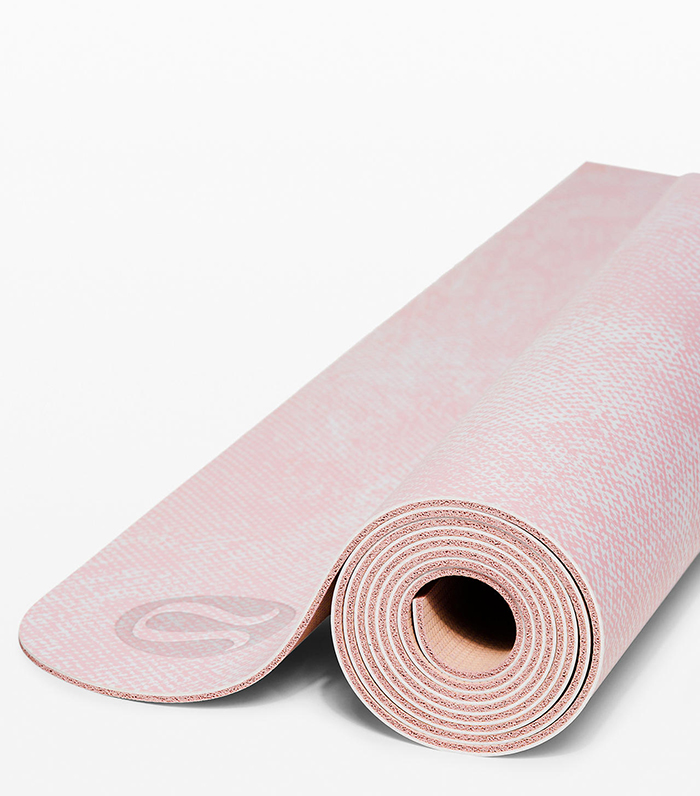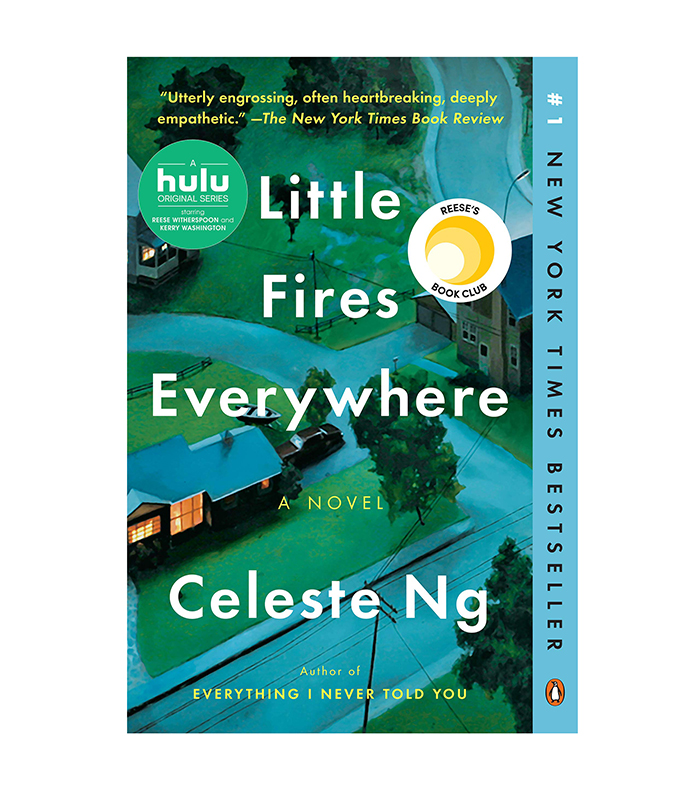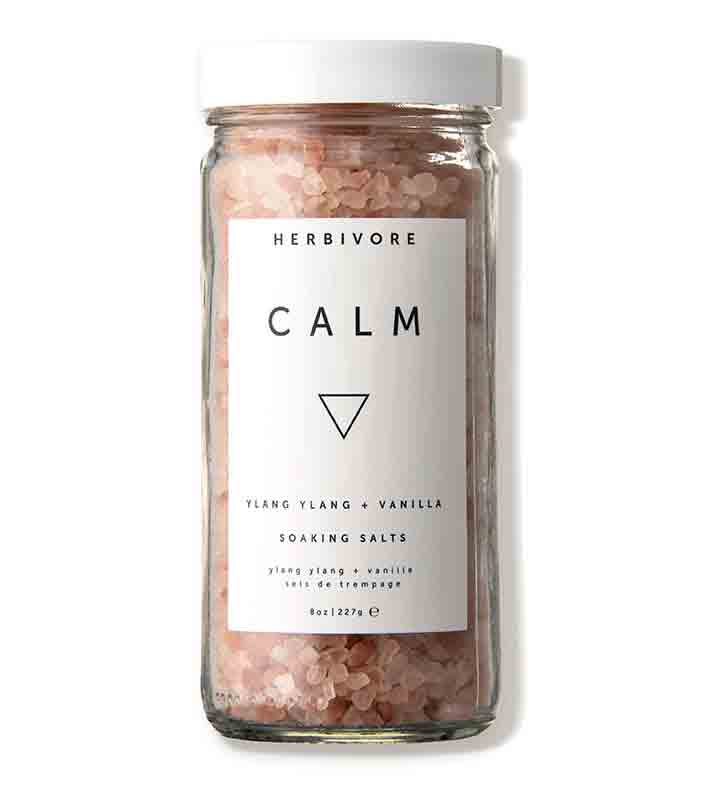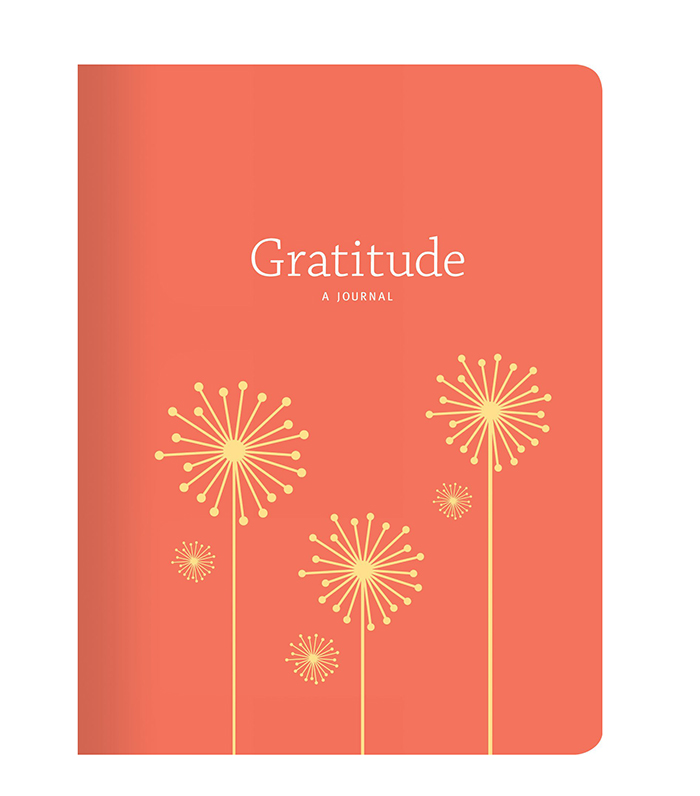9 Things You Can Do for Your Mental Health When Everything Feels Uncertain
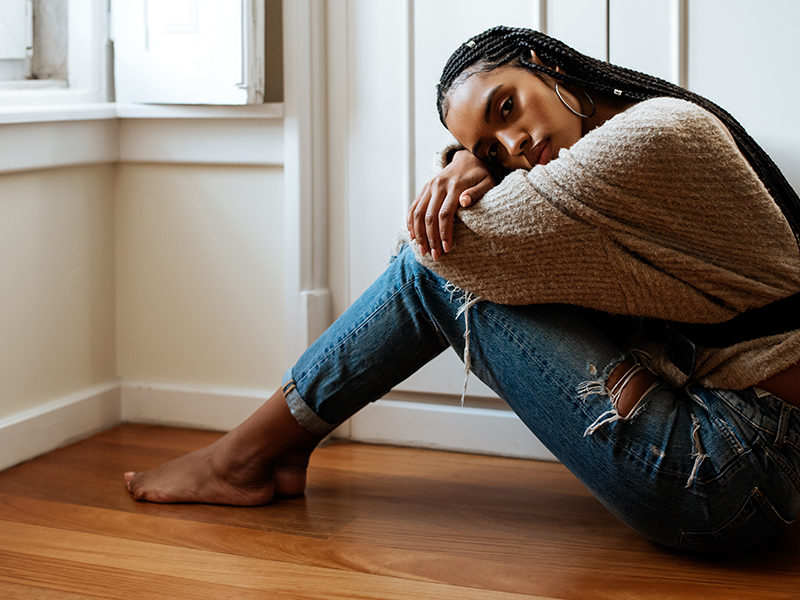
When everything you read and see on the news is saddening, frustrating, and uncertain, it can seem overwhelming and cause feelings of anxiety and hopelessness. And even if you wanted to take a break from it all, it's really hard to escape it if everyone around you is talking about the latest events and it's all over your social media feeds. It may help to take action where you can, but it's also important to take care of your mental health and well-being. There's that saying, "You can't pour from an empty cup." You can't support others around you when you are emotionally (and maybe even physically) drained.
And all of this can really make a big impact on your mental health. It's easy to feel anxious and helpless right now. "Anxiety lives in the unknown, and this situation is constantly changing and contributes to a lot of uncertainty," explains Madeleine DiLeonardo, MEd, LPC, NCC, a licensed professional counselor and the founder of Mind Body and Soul by DiLeonardo Wellness.

There are some steps you can be taking to help manage those feelings of anxiety, worry, and stress. Taking care of yourself and watching out for others is so important right now. We've rounded up some actionable tips below. And if you or someone you know is having some difficulty, you can also reach out to the Substance Abuse and Mental Health Services Administration for help and resources at 1-800-662-HELP (4357).
1. Shift Your Mindset
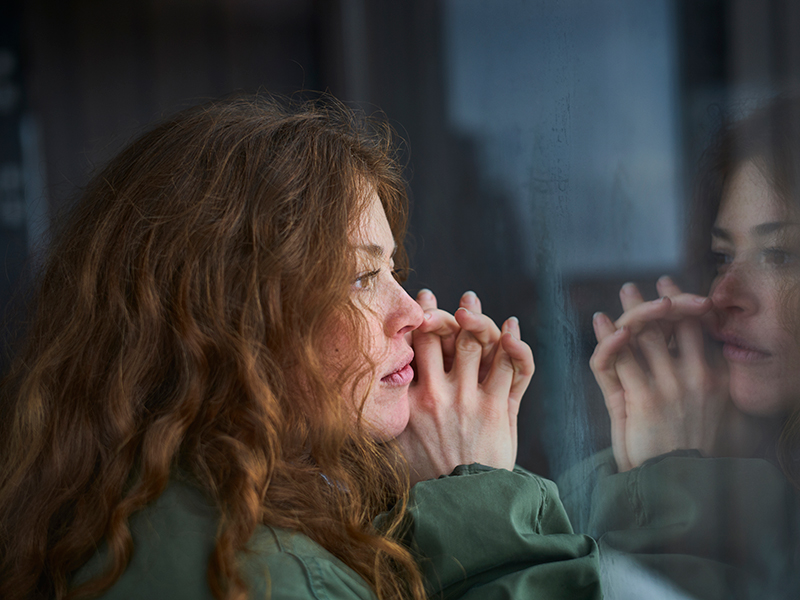
Focus on what you know for sure. "What I mean by this is controlling the things that can be controlled and focusing your energy more on what grounds you instead of fears of the unknown," DiLeonardo explains. "For example, focusing on small things such as knowing your family loves you and calling to check in with them, planning to make yourself lunch, or call a friend after finishing work. Lean in to what you need or what feels good for you on a day-to-day basis. By focusing on doing the next right thing that feels good for you, you can minimize getting stuck in a cycle of anxious thinking."
2. Create and Follow a Daily Routine

You'll probably hear this tip a lot when it comes to coping with the stresses of what's happening right now. But a routine really helps ground you. The American Psychological Association says, "Maintaining a daily routine can help both adults and children preserve a sense of order and purpose in their lives despite the unfamiliarity of isolation and quarantine." The organization suggests trying to stick to your regular daily activities, like work, exercise, and hobbies if you can.
3. Take Care of Your Body

If you want to stay as healthy as you can throughout this, you'll have to take care of your body. The Centers for Disease Control and Prevention suggests people "take deep breaths, stretch, or meditate. Try to eat healthy, well-balanced meals, exercise regularly, get plenty of sleep, and avoid alcohol and drugs."
4. Check In With Others
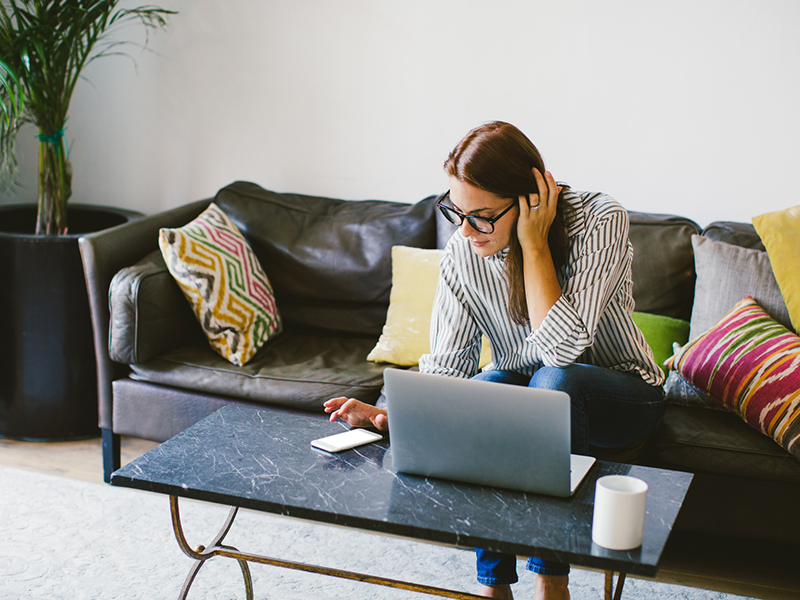
Technology comes in handy here. Take advantage of it! Schedule video chats or FaceTime calls with your friends and family. Text someone you haven't spoken to in a while. Call your grandma.
"This is a really unique time in our country and world, and we want to be recognizing that and encouraging people to take care of each other," DiLeonardo adds. "By checking in on other people, this allows for human connection and the sharing of feelings which is really valuable right now. We are wired for this sense of human connection and helping or checking in on others can also elevate your own mood as well."
5. Put Boundaries on Your Phone
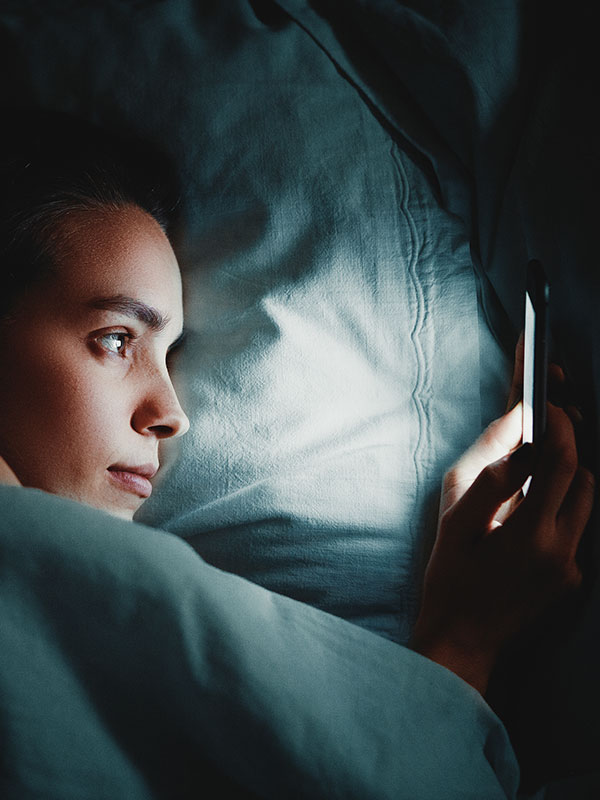
I'm actually nervous about looking at my screen time usage this week. It's probably going to go up by 200%. It's been nonstop reading the news, texting people, scrolling through Instagram, trying to figure out TikTok… I've got a lot of time on my hands now.
But DiLeonardo suggests putting your phone away for at least some part of the day. "Try to determine what your own balance is in order to remain informed and yet not be consumed by news and social media," she explains. "Because many people are working from home, we may have more access to easily picking up our phone regularly and scroll through the news or social media. Try putting your phone across the room for an hour. (You may notice how many times you go to grab it out of habit.) Or give yourself a certain amount of time to look at the news each day and then try to focus on other things."
6. Employ Some Distraction Techniques

"Reading a book or engaging your mind in something completely different than watching the news or thinking about the coronavirus can be a helpful break," DiLeonardo suggests.
Luckily there is so much out there to provide some much-needed distractions. Binge a TV show or watch a movie on one of the endless streaming platforms out there. Craft something. Take care of your plants. Read a book. Listen to a podcast that has nothing to do with what's happening right now. Whatever keeps you occupied, do it.
7. Accomplish the Little Things
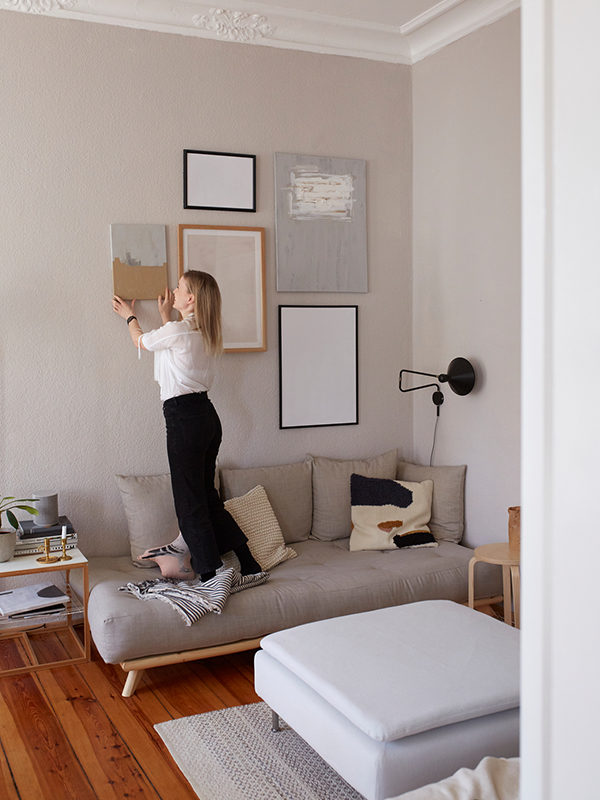
"Can you consider some projects around your house or things you have been putting off that would feel good to accomplish?" DiLeonardo suggests. "Try to identify some silver linings in this situation such as time at home providing more of an opportunity to work on a passion project, spending quality time with family, or accomplishing some much-delayed chores."
Plus, crossing something off your to-do list can make you feel so good.
8. Make Time to Unwind
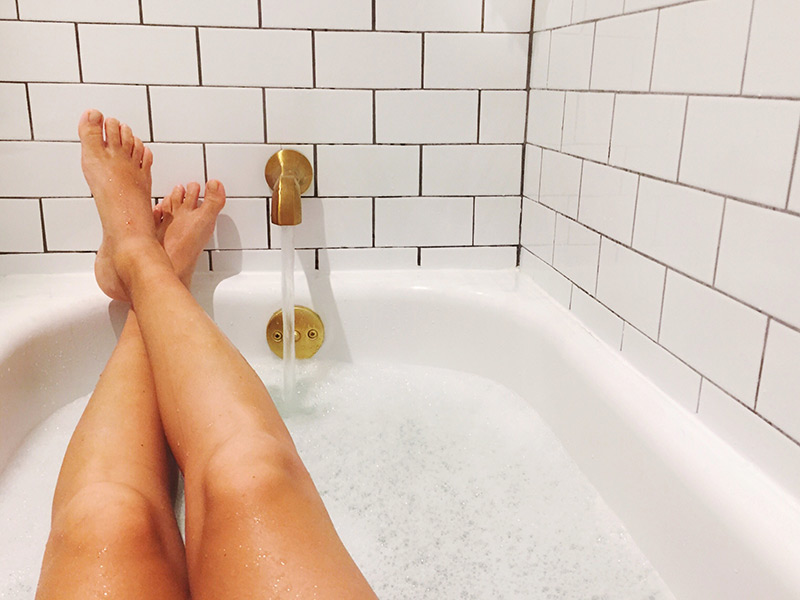
Just because you might be spending more time at home doesn't mean it's an automatic unwinding session every day. If you're working from home, you're dealing with those stresses, but from a place like your kitchen table instead of your office building miles away. It's easy to let the stresses infiltrate every room of your house. So at the end of the day (or during, if you need it), make some time to relax and breathe.
The CDC suggests doing a favorite activity you enjoy. We recommend any self-care strategy that works for you, whether it's taking a bath, lighting a candle and meditating, getting a workout in, or just closing your eyes and lying down for a couple of minutes.
9. Use Psychological Strategies
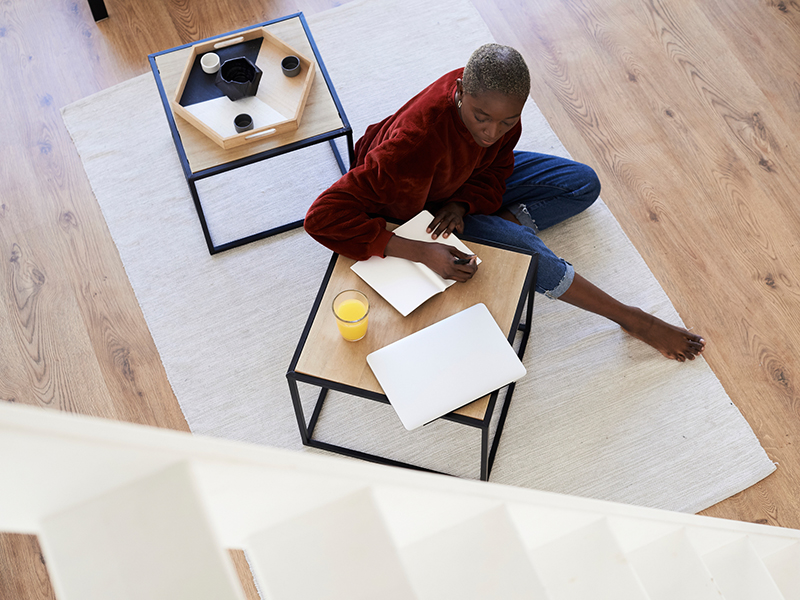
The APA suggests doing things like keeping a daily gratitude journal and downloading mindfulness and relaxation apps, which can help you change your mindset or make you feel more in control of your anxiety or worries.
Disclaimer
This article is provided for informational purposes only and is not intended to be used in the place of advice of your physician or other medical professionals. You should always consult with your doctor or healthcare provider first with any health-related questions.
Sarah is lifestyle writer and editor with over 10 years of experience covering health and wellness, interior design, food, beauty, and tech. Born and raised in Los Angeles, she attended New York University and lived in New York for 12 years before returning to L.A. in 2019. In addition to her work at Who What Wear, she held editor roles at Apartment Therapy, Real Simple, House Beautiful, Elle Decor, and The Bump (sister site of The Knot). She has a passion for health and wellness, but she especially loves writing about mental health. Her self-care routine consists of five things: a good workout, “me” time on the regular, an intriguing book/podcast/playlist to unwind after a long day, naps, and decorating her home.
-
 This Founder Shares Why We Should Start Celebrating Rest
This Founder Shares Why We Should Start Celebrating RestBurnout is nothing to be proud of.
By Kia Topps
-
 Why Dr. Deepika Chopra Believes that Optimism is Resiliency
Why Dr. Deepika Chopra Believes that Optimism is ResiliencyWhy you should start embracing every feeling.
By Kia Topps
-
 How TikTok's Favorite Photographer Helped Me Find My Confidence
How TikTok's Favorite Photographer Helped Me Find My ConfidenceI renewed my relationship with myself.
By MacKenzie Green
-
 11 Things to Do If You're Dealing With Anxiety at Work
11 Things to Do If You're Dealing With Anxiety at WorkThese can help.
By Casey Clark
-
 Here's Why I Make Time for "Play" Every Day—and Why You Should Too
Here's Why I Make Time for "Play" Every Day—and Why You Should TooIt's one of the best things you can do for yourself.
By MacKenzie Green
-
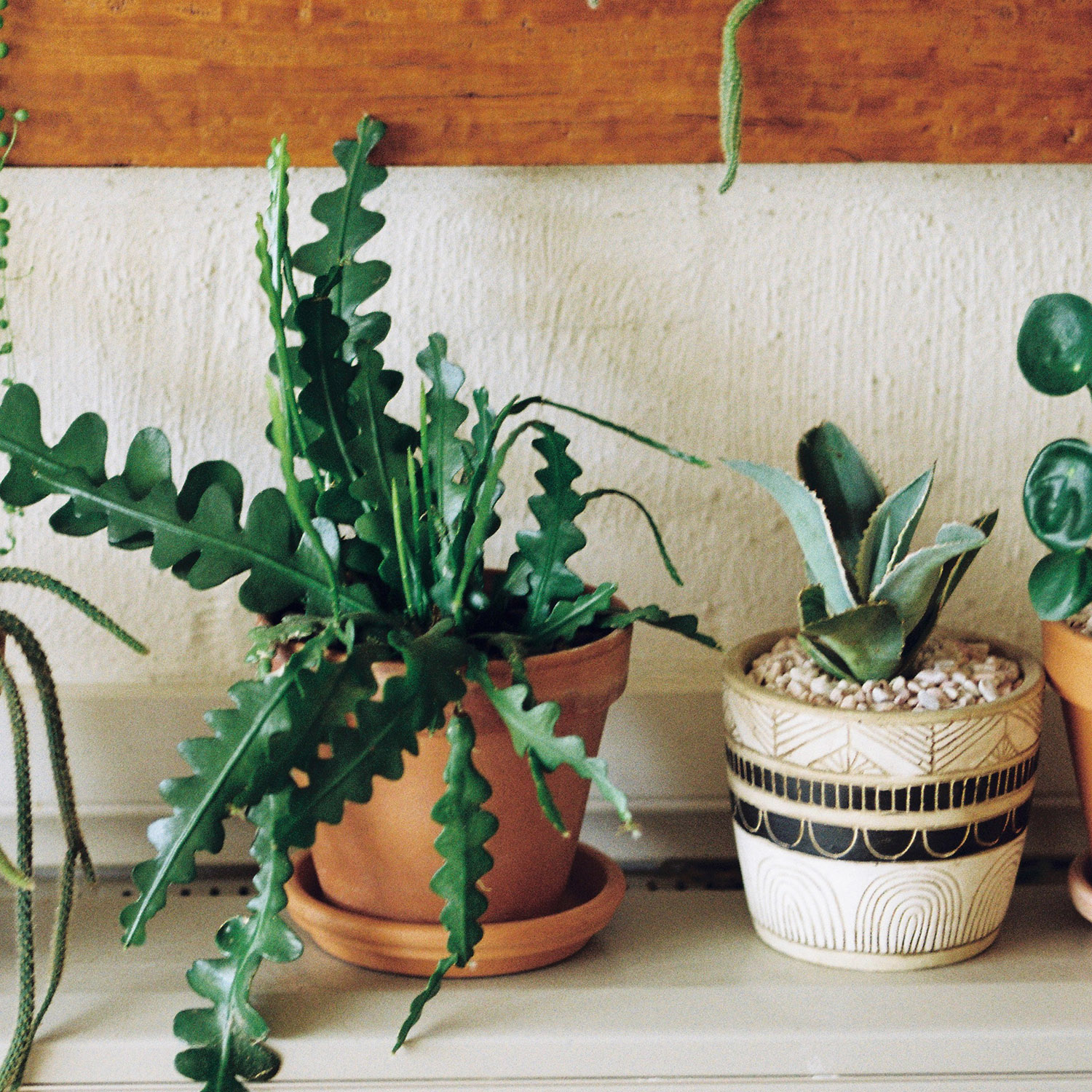 How to Choose a Plant Based on Your Personality Type
How to Choose a Plant Based on Your Personality TypeDo you have a green thumb?
By Sarah Yang
-
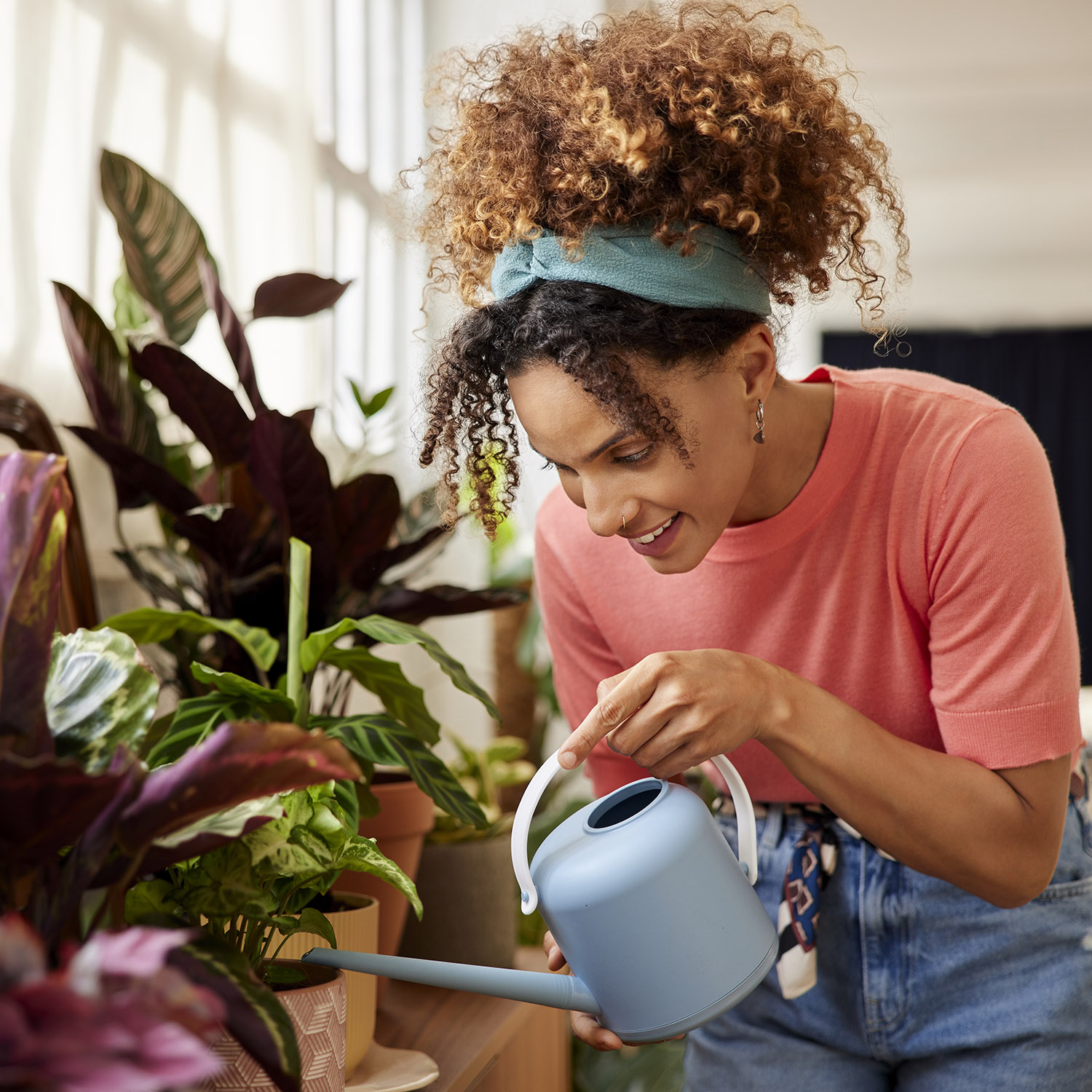 If You're Super Stressed Out, These 17 Things Can Make You Feel Better
If You're Super Stressed Out, These 17 Things Can Make You Feel BetterTry them.
By Sarah Yang
-
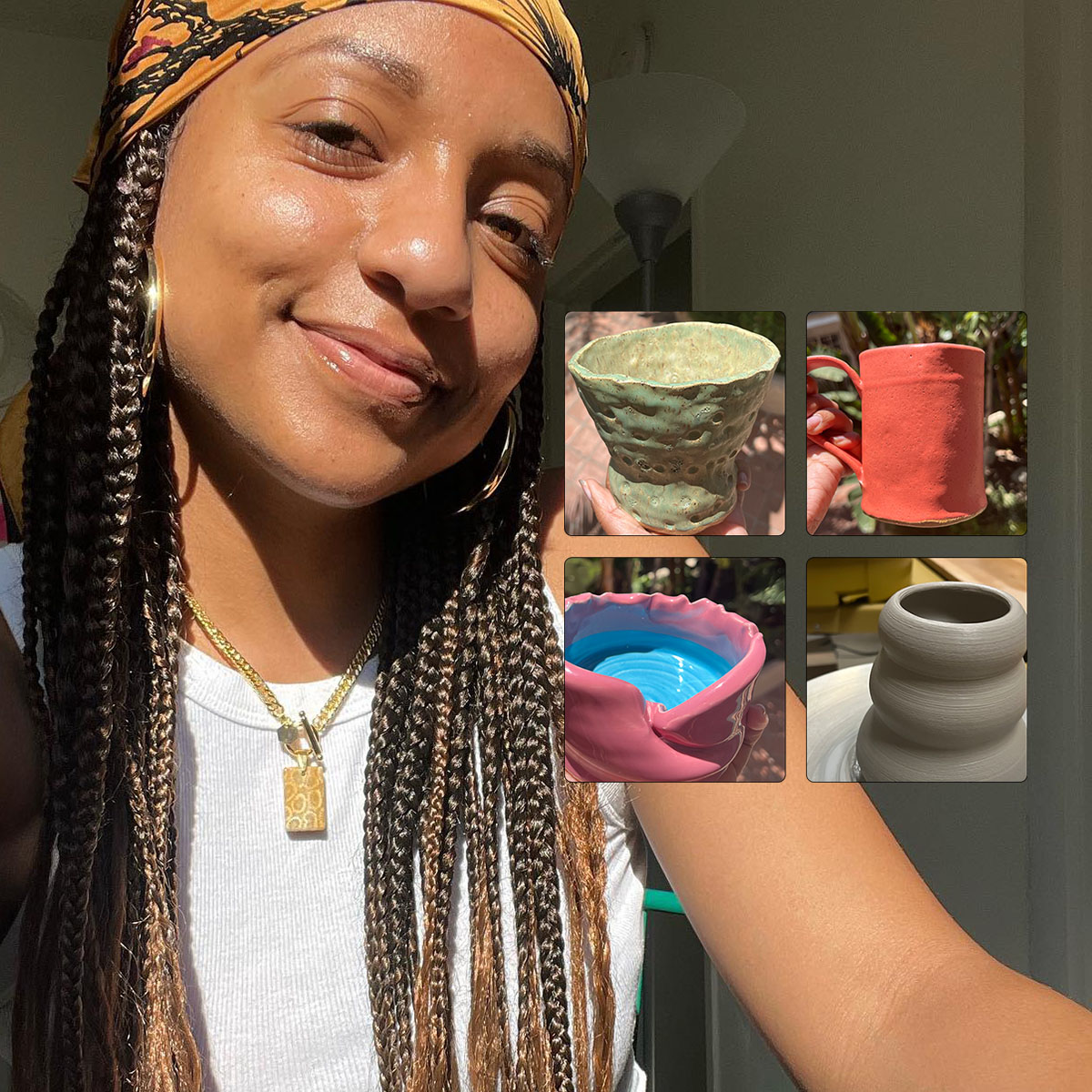 I Tried Pottery Classes as a Way to Better My Mental Health—Here's What Happened
I Tried Pottery Classes as a Way to Better My Mental Health—Here's What HappenedI left my classes with more than I bargained for.
By Kia Topps
